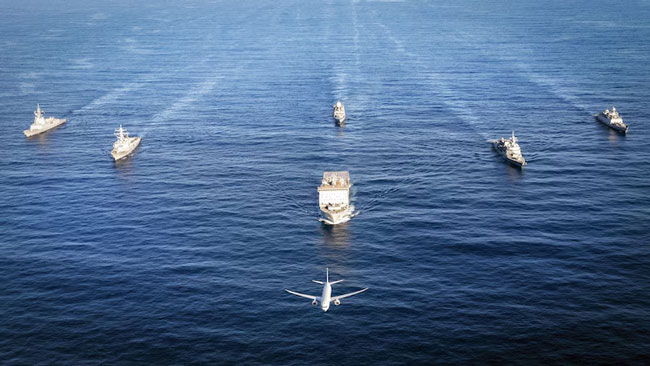Sri Lanka Cancels Joint Naval Exercise with Pakistan Following India’s Objection
Desk: Following strong objections from India, Sri Lanka has cancelled a proposed joint naval exercise with Pakistan that was scheduled to take place later this year near Trincomalee — a strategically significant location where India, Sri Lanka, and the United Arab Emirates (UAE) are jointly developing an energy hub. The decision came after India conveyed its serious concerns to the Sri Lankan government regarding the exercise.
According to sources, the naval drill was proposed just a few weeks before Indian Prime Minister Narendra Modi’s visit to Sri Lanka. During that visit, India and Sri Lanka signed their first-ever Defence Cooperation Memorandum of Understanding (MoU), along with a trilateral agreement with the UAE to jointly develop the Trincomalee energy project. The energy collaboration includes the development of a multi-product pipeline and the refurbishment of oil tank farms originally built during World War II.
Once Indian authorities learned of the planned joint naval exercise, the Indian High Commission in Colombo swiftly reached out to the Sri Lankan administration, expressing deep concerns. India emphasized that it has vital strategic interests in the region and that such activities could escalate its security anxieties. Sources noted that India viewed the exercise as a deliberate attempt by Pakistan to provoke tensions. Following India’s intervention, Sri Lanka quietly shelved the plan, despite resistance from the Pakistani side.
This development comes in the wake of Sri Lanka’s decision last year to suspend the docking of foreign research vessels for a year — a move primarily aimed at monitoring the activity of Chinese surveillance ships, which have long concerned New Delhi. Despite this, Pakistani naval ship PNS Aslat docked at Colombo port earlier this year and conducted a “PASSEX” exercise with a Sri Lankan Navy warship off the capital’s coast, focusing on communication and tactical operations.
India has remained highly vigilant over the presence of Chinese and Pakistani warships in Sri Lankan waters. This concern intensified after China took control of the Hambantota port on a 99-year lease, which has since seen an increase in the arrival of Chinese naval and surveillance vessels capable of tracking satellites and missile launches.
In December last year, Sri Lanka imposed a one-year ban on foreign research vessels, a decision largely aimed at limiting Chinese maritime surveillance in the region. However, the country has yet to announce a permanent policy on such vessels.
A New Chapter in India-Sri Lanka Defence Cooperation
The defence cooperation agreement signed during PM Modi’s visit on April 5 marks a significant milestone, being the most substantial defence pact since India’s involvement in Sri Lanka’s civil war in the 1980s. The MoU lays the foundation for enhanced military collaboration, including joint exercises, defence manufacturing, and strategic coordination.
Trilateral Energy Agreement: India, Sri Lanka, and UAE
The same day also witnessed the signing of a trilateral MoU among India, Sri Lanka, and the UAE to develop an energy hub in Trincomalee. The agreement encompasses the development of a multi-product pipeline and the modernization of the oil tank farm, partially controlled by Lanka IOC, the Sri Lankan subsidiary of Indian Oil Corporation.
Back in 2022, Lanka IOC, Ceylon Petroleum Corporation (CPC), and their joint venture partners signed lease agreements to refurbish and operate the 850-acre oil storage facility in Trincomalee — an area both naturally secure and of immense strategic importance.
This trilateral agreement is expected to further bolster India’s position in the region, particularly in light of China’s growing presence, marked by its state-owned firm Sinopec’s $3.2 billion refinery project in Hambantota.




